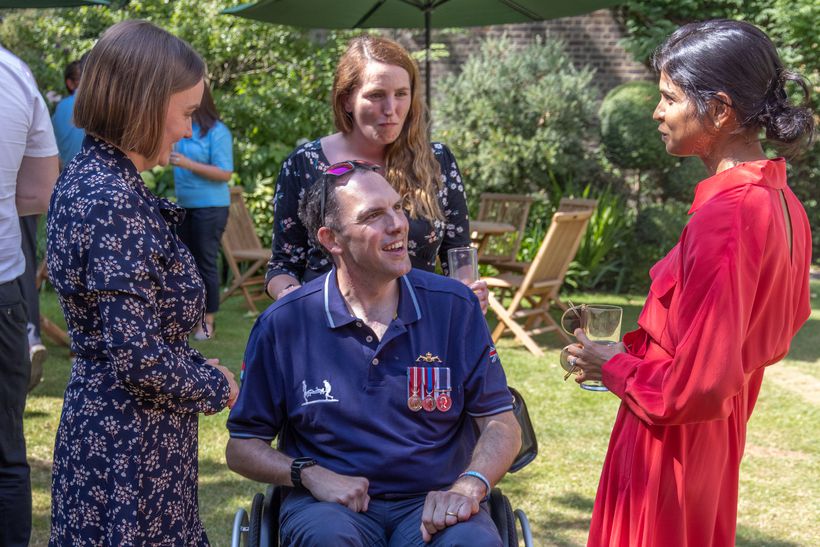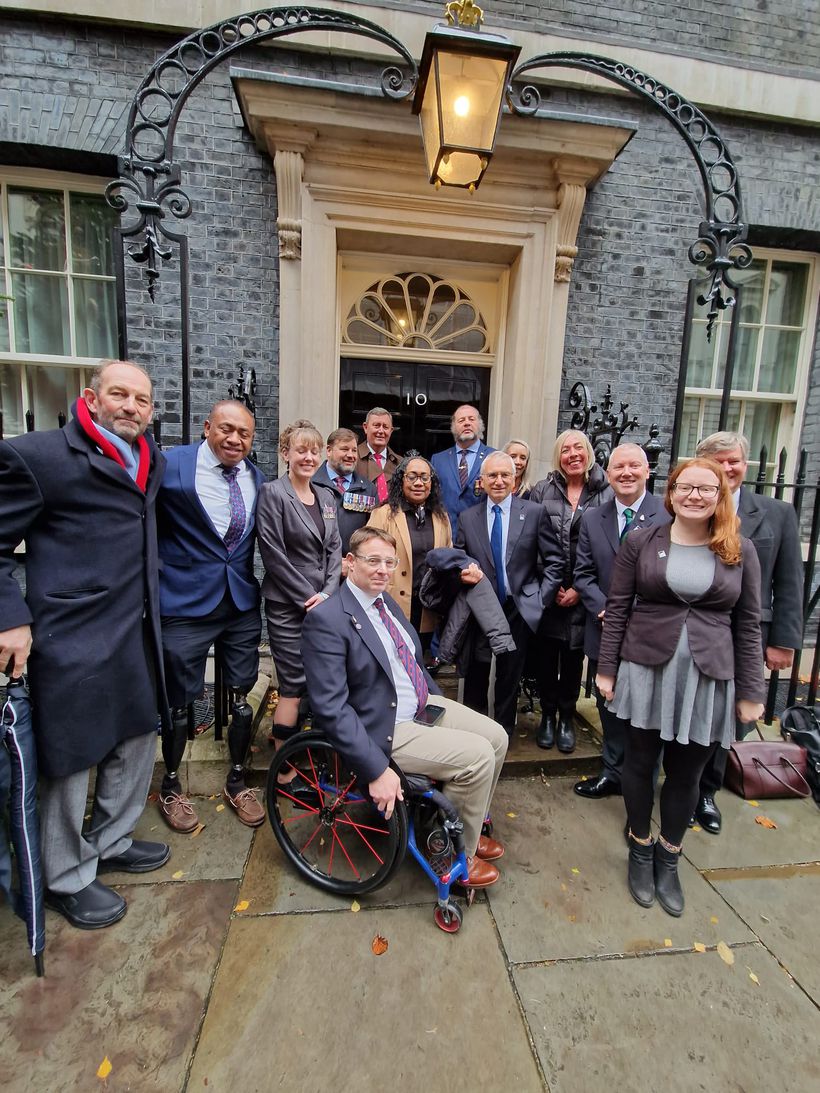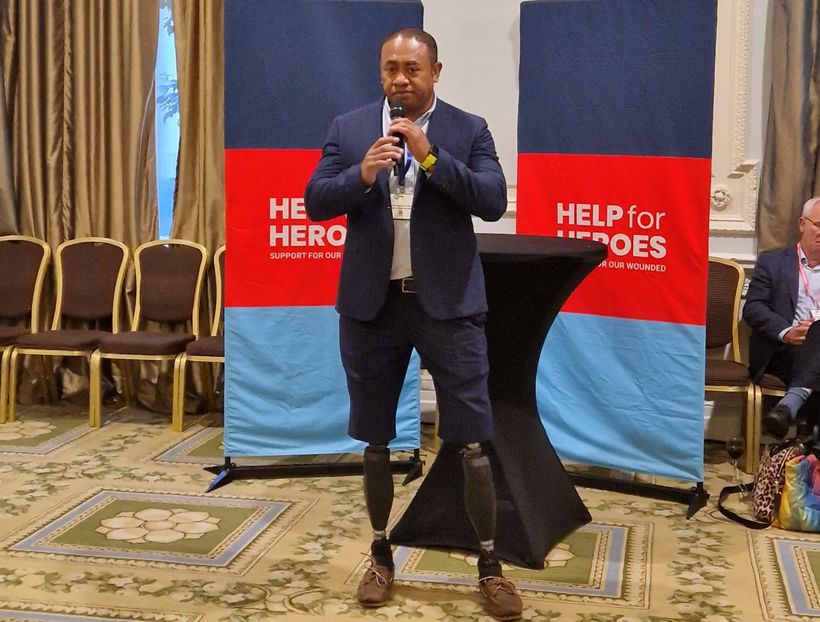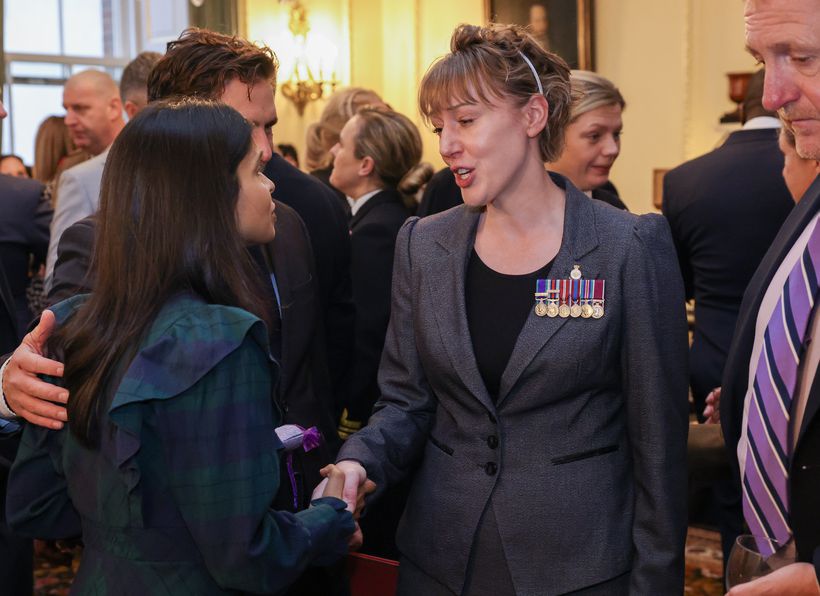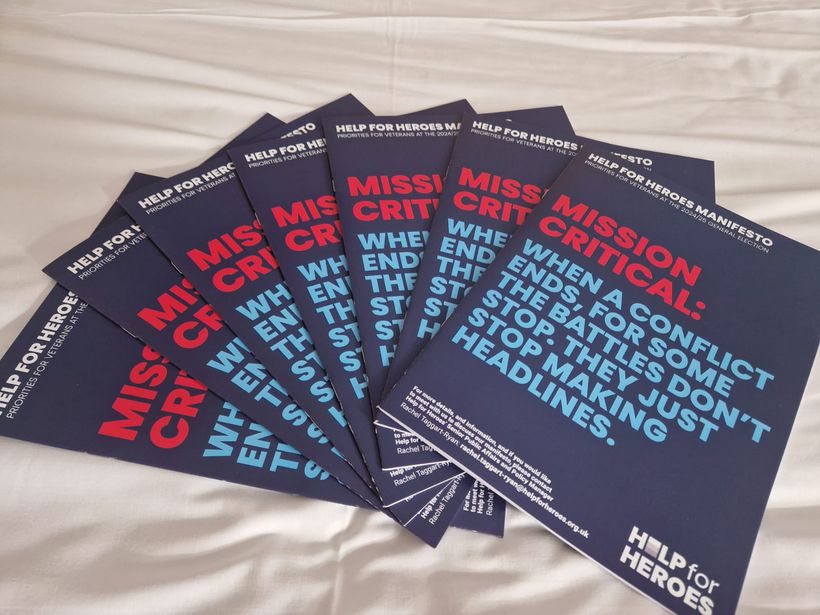Updated on
Help for Heroes has responded to the Office for Veteran Affairs’ (OVA) consultation on Supporting our Veterans. This consultation asked UK veterans and Armed Forces organisations to share their views on the needs of veterans and their families to help shape future policies.
Our focus in the consultation was the many gaps within the statutory provision for veterans that prevent them from living well after service. Our key asks for the OVA are to bring forward legislation and push for policy change at the Ministry of Defence (MOD) and other government departments to:
We hope this extensive consultation will form the blueprint for veterans’ policies in the upcoming year."
Head of Public Affairs and Policy
- Expand the criteria for acceptance into the Integrated Personal Commissioning for Veterans (IPC4V) funding programme and increase the funding allocated per individual veteran, from £27k to £40K per annum.
This is a funding programme for a small number of our most seriously injured who have sustained catastrophic mental and physical injuries, while serving our country. However, the funding is insufficient to cover their complex and extensive life-long needs. Currently, we provide financial support to cover these shortfalls through our Thriving beyond the Battlefield programme, to ensure these veterans are able to not just survive but thrive. Only those injured before 2010 are eligible for IPC4V support those who were injured before this have a number of complex injuries and are being cared for by their families. IPC4V does not support those in residential care which restricts their access to Veteran/Community events and additional life changing equipment such as specialist communication devices to communicate with their friends and family. - Reinstate long-term funding for the Veterans’ Hearing Loss Fund, closed in 2021
An estimated 300,000 UK veterans suffer from hearing loss. Sixty-nine per cent of Royal Marine Commandos have had severe to permanent hearing damage, and, overall, those in our Armed Forces are 3.5 times more likely to suffer from hearing loss than civilians. When the Government launched the Veterans Hearing Fund in 2015, it recognised veterans needed to receive hearing devices, peripherals, and therapies unavailable through the NHS. Today the fund is no longer available, but the need remains. The Government needs to re-establish this fund and integrate commissioning for veteran-specific hearing treatments and equipment within the NHS in the long term.
Ryan Thomas in 10 Downing Street Garden - 10 Downing Street
- Create an NHS rehabilitation pathway for veterans that provides equivalent level of care to the DMS
We would like the NHS to provide a commissioning pathway that would guarantee like-for-like replacement of medical aids and devices for disabled veterans, who had been initially provided them by the Defence Medical Services. Whilst still serving, severely wounded veterans can access world-class rehabilitation services at DMRC Stanford Hall, run by the Defence Medical Services. They are provided with the highest standards of medical aids and devices, such as standing wheelchairs and high-performing prosthetics. However, once they leave service and the lifespan of these devices expires, replacing them becomes the responsibility of the NHS, which generally provides equipment of lower quality and utility. We want the Government to improve the NHS pathway for commissioning of medical aids and devices for veterans, to ensure that the standard of equipment they receive does not deteriorate over time. - Roll out Programme CORTISONE
Programme CORTISONE is a new computer system that will provide electronic transfers of medical records between the Defence Medical Services and the NHS. We are dismayed by the time it is taking to deliver on this commitment, which began in 2015. We would like to see this system operational by the end of 2024.
Help for Heroes veterans' at Downing Street Reception, November 2023 - Help for Heroes
- Improve awareness of Op RESTORE
We are pleased that NHS England and Department for Health and Social Care have continued to develop the former Veterans’ Trauma Network to create an integrated plan for the physical health of veterans, and aim to extend this work to the devolved administrations. The focus must now be around ensuring GPs, healthcare providers, and the third sector can effectively signpost and make referrals into this pathway, and that care is consistently available and of high-quality regardless of where the veteran lives. - Expand ‘Veteran-friendly’ GP accreditation
The number of Veteran Friendly GP Accreditations was up to 2,300, in 2023, from 1,520 the previous year, but still too many GPs are still unaware of the issues associated with service-related injuries. Accreditation remains voluntary and there is a further need to improve the identification and coding of veterans in GP computer systems. This would increase awareness and understanding of their health requirements. Consideration should be given to creating equivalents to ‘veteran friendly’ GPs in Scotland and Wales.
Veteran and Paralympian Derek Derenalagi speaking at Conservative Party Conference, Sept 23 - Help for Heroes
- Commission an independent review of the medical discharge process
Our studies show that almost 70 per cent of the medically discharged veterans we supported had a negative or very negative transition experience following medical discharge from the Armed Forces. This process is clearly not working to support our veterans and needs urgent reform. We want to secure an independent Government review of the medical discharge process, which is based on addressing these key inconsistencies and gaps in support. This review should view the process from the experience of serving personnel and consider consistency across all three military services. - Improving Op Courage pathways
There are also issues with consistency, in that NHS practitioners do not routinely have expertise in military mental health, and those who provide the treatment may not have adequate experience treating veterans, particularly those with complex military psychological conditions. We would like to see a common assessment tool, better signposting, and the expansion of the service to the devolved nations.
Veteran Megan Lloyd meeting Veterans Minister Johnny Mercer and Akshata Murty - 10 Downing Street
- Disregard War Pensions and Armed Forces Compensation Scheme as income from benefits and pensions
Military compensation payments are made to veterans in recognition of the pain and disablement their service injury or illness has caused them. As such, it is distinct from other forms of income replacement or disablement benefits. Veterans and their families should not be disadvantaged in receiving other welfare benefits, to which they would otherwise be entitled, because they are in receipt of military compensation, nor be forced to forgo it. This runs counter to the first principle of the Armed Forces Covenant. The Government has recognised this by changing policy to fully discount this from Universal Credit – we want to see this disregard across all other benefits. - Add chronic pain as a condition within the Armed Forces Compensation Scheme (AFCS) tariffs
Chronic pain is recognised as a distinct disease by the World Health Organization as a pain that persists for more than three months. However, the AFCS is currently out of step with medical guidance as it does not recognise or compensate veterans who suffer from diagnosed chronic pain. The very purpose of the AFCS is to compensate for ‘pain and suffering’ experienced by those injured, and their families, because of their service. Yet when it comes to pain, the system completely fails to consider the lifelong and extensive impact of these conditions. We advocate that AFCS legislation is amended to include chronic pain.
Help for Heroes' Priorities for Veterans at the 2024 General Election booklets - Help for Heroes
- Reform Armed Forces Compensation and War Pensions tariffs to closer reflect those received within the civilian compensation systems
For those eligible, AFCS and War Pension will provide a lump sum award to reflect suffering which results from the injury sustained or illness acquired because of service. However, the award amounts are likely to be dramatically different between the award made to a veteran and that you would reasonably expect in a civil claim. For example, for a Non-Freezing Cold Injury, under AFCS, the injured veteran would receive a lump sum of £6,000. For the equivalent injury, a civilian could expect to receive anything up to £180,000. - Extend the scope of the Armed Forces Covenant in law
The Armed Forces Act 2021 put the promise of the Covenant on a legal footing for the first time. However, while most of the public believe it is the responsibility of national government to deliver, the UK Government has exempted itself from the new duty to give due regard to the Covenant in decision-making and policy development. We believe national government should be brought within the scope of the new legal duty and that the full range of policy areas protected by the Covenant should be extended to include all issues affecting the Armed Forces community, including social care, employment, pensions, compensation, and immigration.


